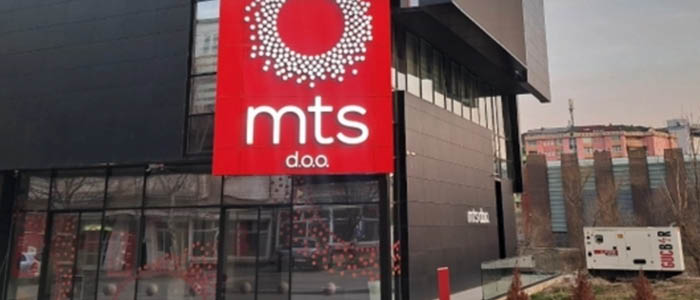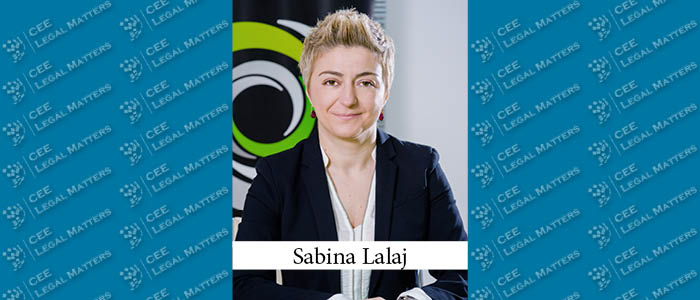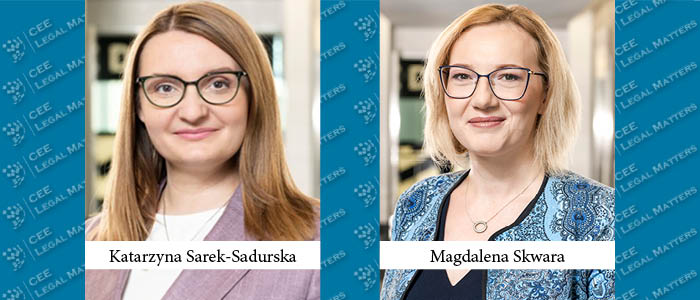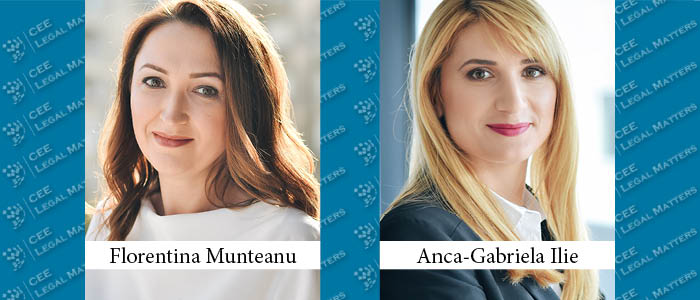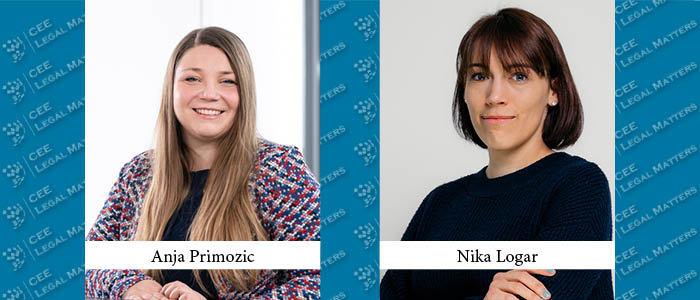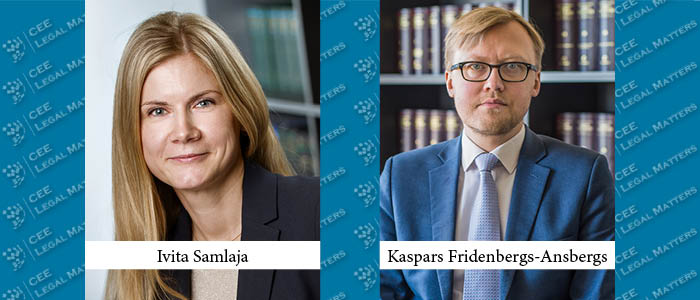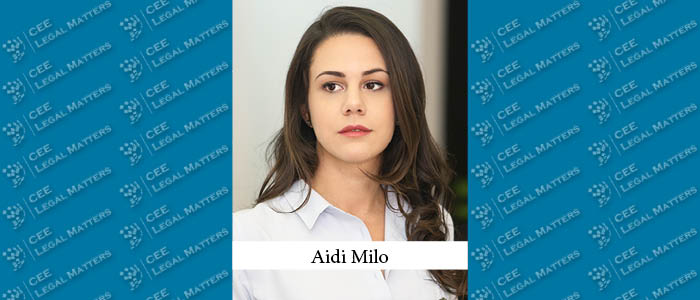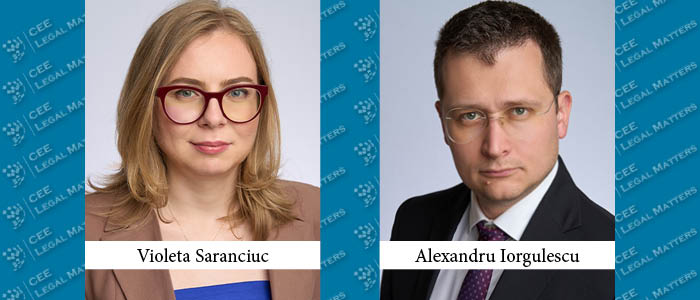BDK Advokati, Dentons, and Nestor Nestor Diculescu Kingston Petersen have advised Invenio Partners on the segmentation – together with Accession Capital Partners – of the vocational education division of the Link Group. The Antonic law firm in cooperation with Deloitte advised the Link Group and its two shareholders on the sale. Gladei & Partners reportedly advised Invenio as well. Schoenherr and Norton Rose Fulbright reportedly advised ACP.
Deloitte Legal Advises Immofinanz on Sale of Wienerberg Office Properties to S Immo
Deloitte Legal has advised Immofinanz on its sale of office properties in Wienerberg, Vienna, to S Immo. Dorda reportedly advised Immofinanz as well. Schoenherr reportedly advised S Immo.
Deloitte Legal Advises Altavia on Acquisition of Agencja K2 and K2 Precise
Deloitte Legal has advised the Altavia group on the acquisition – via its Kamikaze subsidiary – of Agencja K2 and K2 Precise, both operating in the marketing industry.
Gecic Law and RPHS Law Successful for MTS in Telecommunications Dispute in Kosovo
Gecic Law, working with Deloitte Legal and RPHS Law, has advised MTS on a dispute with Pristina authorities stemming from the decision to revoke MTS’s operating license in Kosovo.
Albania Set to Revamp Gambling Regulations: Online Sports Betting and Strict Licensing on the Horizon
Albania is making significant changes to its gambling laws. The Albanian government has been actively revising its gambling regulations, with the latest amendments poised to usher in a new era for the industry. Recent developments and what they mean for the future of gambling in the country are explored below.
Closing: Stock Spirits Acquisition of Polmos Bielsko-Biala Now Closed
On September 11, 2023, Deloitte Legal announced that Stock Spirits' acquisition of Polmos Bielsko-Biala (reported by CEE Legal Matters on August 2, 2022) had closed at the end of August, when the Stock Spirits group – through its Polish subsidiary Stock Polska – took control over Polmos Bielsko-Biala.
Deloitte Legal Advises Savino Del Bene on Entering Czech Market
Deloitte Legal has advised Italian logistics company Savino Del Bene on its acquisition of stakes in two Czech and one Slovak logistics companies operating under the Advanced brand, and its entry into the Czech market.
Implementation of the EU Directives on Work-Life Balance and on Transparent and Predictable Working Conditions: Poland
The EU Directives on Work-life balance and on Transparent and predictable working conditions were introduced into the Polish national legislation on 26 April 2023 and brought about significant changes and obligations for the employers. What do they mean for businesses?
BCGL, CMS, and Deloitte Legal Advise on RiO Family Office Acquisition of PartyDeco and Financing
BCGL has advised Bank Pekao on the financing for RiO Family Office’s acquisition PartyDeco. CMS advised PartyDeco and its founders Mikolaj Gabryel and Agnieszka Gabryel, while Deloitte Legal advised RiO Family Office on both the acquisition and the financing.
Implementation of the EU Directives on Work-Life Balance and on Transparent and Predictable Working Conditions: Romania
The EU Directives on Work-life balance and on Transparent and predictable working conditions were introduced into the Romanian national legislation in February 2022 with subsequent amendments in August 2022, October 2022, and February 2023. These directives have imposed substantial changes and obligations on employers. What do they mean for businesses?
Implementation of the EU Directives on Work-Life Balance and on Transparent and Predictable Working Conditions: Lithuania
The EU Directives on Work-life balance and on Transparent and predictable working conditions were introduced into the Lithuanian national legislation in August 2022 with the remainder following on 01 January 2023 and brought about significant changes and obligations for the employers. What do they mean for businesses?
Noerr Advises Rubix Group on Acquisition of Tar Csavar-Csapagy
Noerr has advised the Rubix Group on its acquisition of Hungarian tool, machine, and general maintenance product distributor Tar Csavar-Csapagy. Deloitte Legal reportedly advised the sellers.
Implementation of the EU Directives on Work-Life Balance and on Transparent and Predictable Working Conditions: Slovenia
The EU Directive on Work-life balance was implemented in the Slovenian national legislation on 01 April 2023, resulting in notable changes and obligations for employers. As for the EU Directive on Transparent and predictable working conditions, its provisions will be incorporated within the amendments to the Employment Relationship Act, which will anticipatedly be presented to the National Assembly for adoption in the upcoming autumn. What implications do these directives hold for businesses?
Implementation of the EU Directives on Work-Life Balance and on Transparent and Predictable Working Conditions: Slovakia
The EU Directives on Work-life balance and on Transparent and predictable working conditions were introduced into the Latvian national legislation in August 2022 and brought about significant changes and obligations for the employers. What do they mean for businesses?
Implementation of the EU Directives on Work-Life Balance and on Transparent and Predictable Working Conditions: Latvia
The EU Directives on Work-life balance and on Transparent and predictable working conditions were introduced into the Latvian national legislation in August 2022 and brought about significant changes and obligations for the employers. What do they mean for businesses?
D&B David si Baias Advises Complexul Energetic Oltenia on Eight PV Projects and New Gas Power Plant with OMV Petrom and Tinmar Energy
PwC Legal Romanian affiliate D&B David si Baias has advised Complexul Energetic Oltenia on selecting the investor-partners for its 1.2-gigawatt decarbonization strategy. Nestor Nestor Diculescu Kingston Petersen reportedly advised OMV Petrom on the partnership for four PV projects. Deloitte Legal affiliate Reff & Associates reportedly advised Tinmar Energy on the partnership for a new gas-fired power plant and four PV parks.
Decision of the Council of Ministers No. 413, On the Determination of Entry, Residence, and Employment in the Republic of Albania of Foreign Nationals, Employees of an IT Company
On 07.07.2023, the Council of Ministers of the Republic of Albania adopted the Decision "On the determination of entry, residence, and employment in the Republic of Albania of foreign nationals, employees of an IT company" (hereinafter referred to as the “Decision”).
Protection of Personal Data in Clinical Trials
May 2023 marks five years since the application of the General Data Protection Regulation, better known as "GDPR", and its requirements still pose a number of challenges for organizations. On one hand, this is because ensuring compliance with GDPR is not a "one-time exercise" but a continuous process "from within", requiring synchronization with all other activities in the organization. On the other hand, companies must also take into consideration innovations "from the outside", including new regulations and technologies, by promptly addressing data protection risks.




